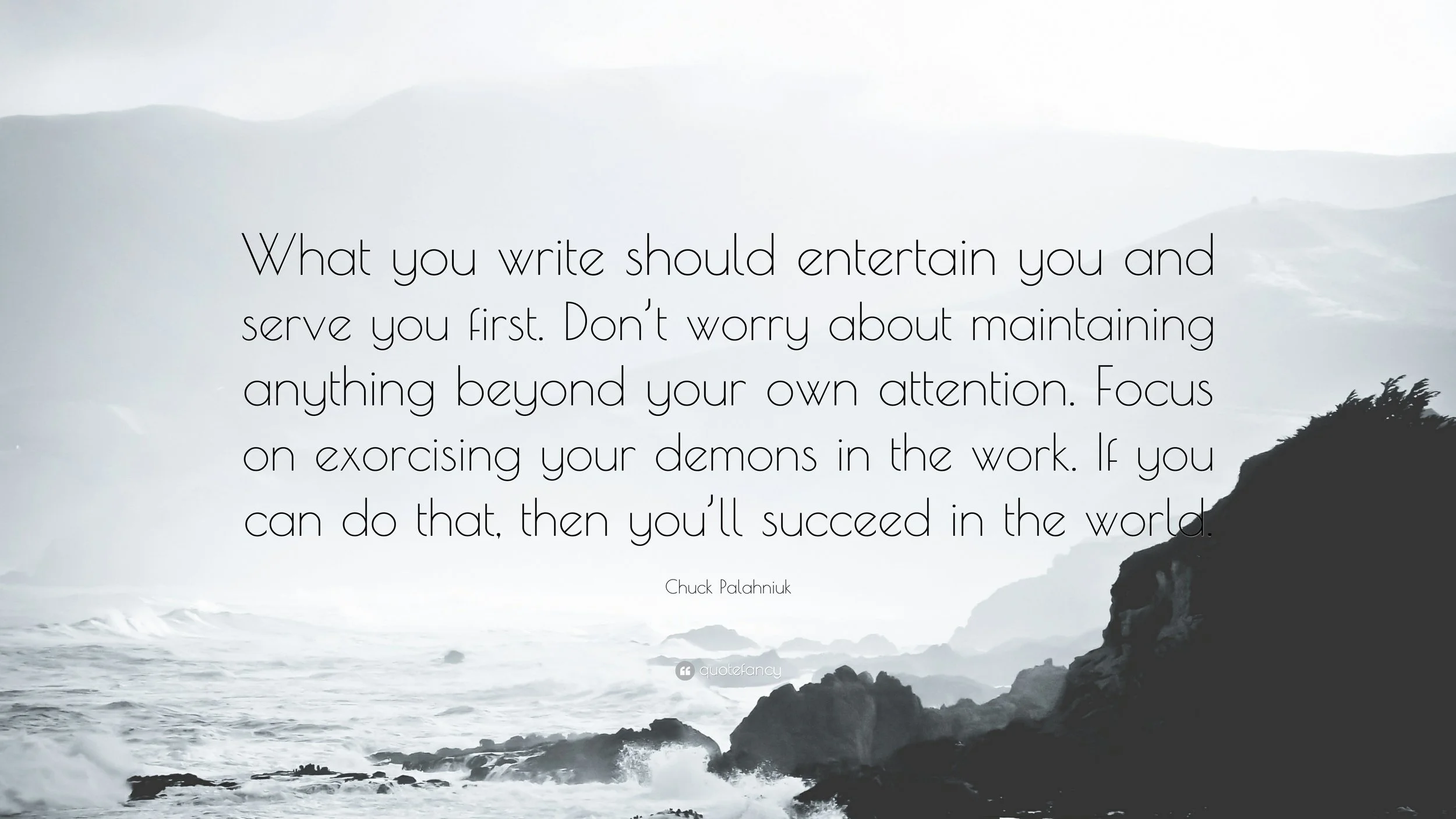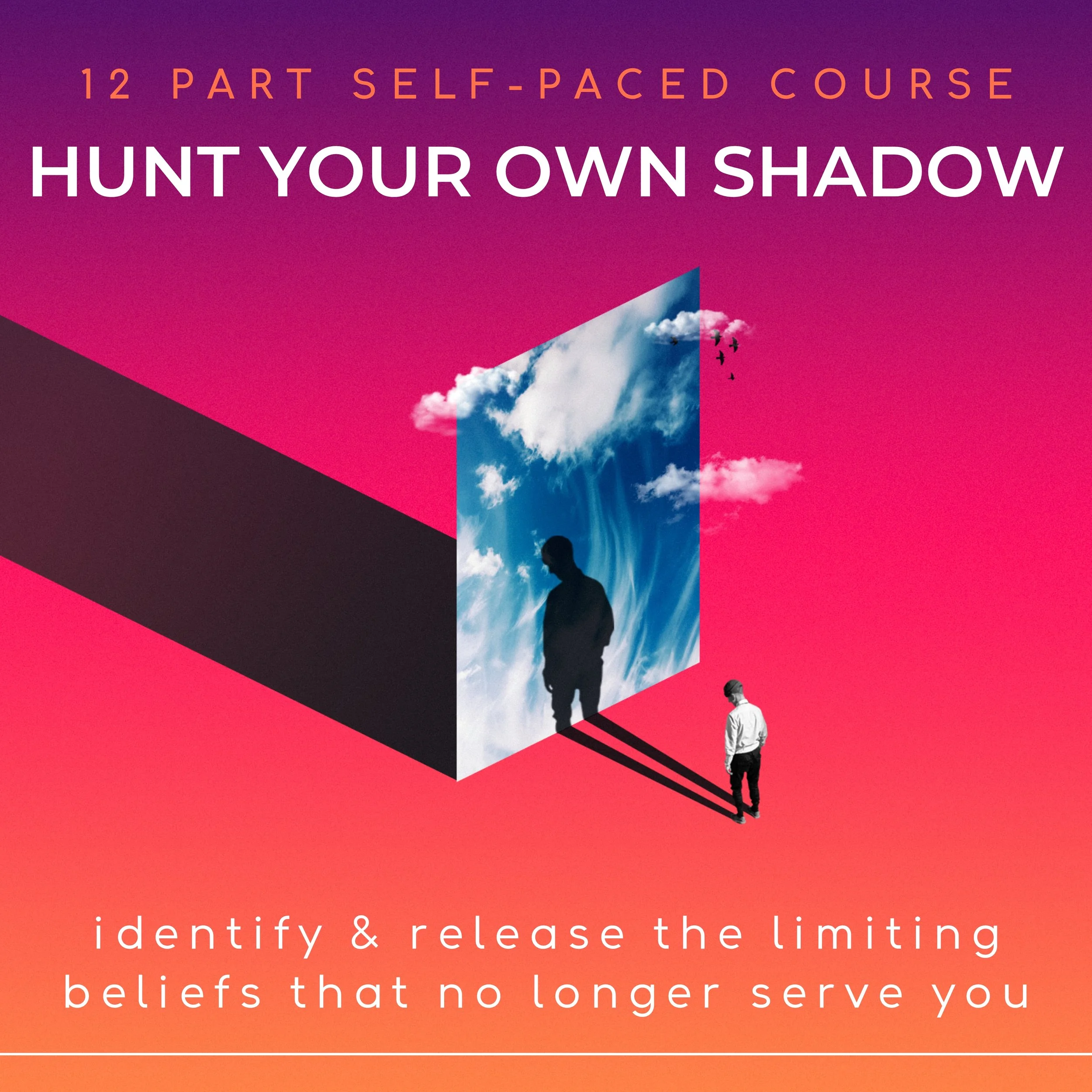Write What You Know, Not What You Think Will Sell
- A chapter from How To Write Evocative Poetry, out now in paperback, eBook, & audio -
Pro tip: write what you know, not what you think will sell.
One of the main problems creatives of all persuasions have, is that they attempt to replicate the current trends. They see what is working and then try to do it themselves, only to get discouraged when they fail to see similar results.
Some will tweak and refine and practice until they get it right, but the vast majority won’t. Most of them will give up, put down the pen, and stop writing all together. This is a shame, more so for the fact that it is easily avoidable.
Your best work will come from what you know, what you have experienced, and most importantly what you need to express. That successful artist is successful because they have honed their unique expression of their artform. They are creating like themselves, not attempting to replicate the success of another person.
Consider my poem ‘seed’, I wrote it as an expression of the internal contradictions I felt as a result of my mental illness and past trauma compared to the innate potential and drive I feel within.
I didn’t aim to produce anything other than expression of feelings. The result is a poem that is instantly recognisable to my readers as being one of mine (the monorhyme style and topic).
Check it out:
Seed
Sometimes,
I feel like a seed.
A potential inert,
A possibility to succeed.
So just put me in the dirt
And give me what I need.
How else can I avert?
How else can I exceed?
Other times,
I feel hurt.
Just a societal weed.
A potential victim on alert,
Nurtured only when I bleed.
I don’t mean to be curt,
How else can I plead?
How else can I divert?
How else can I be freed?
I am the hurt seed, the weed that’s only freed by the blood that it bleeds. Put into the dirt just wishing to exceed. Inert without encouragement, unable to succeed. Thus, I plead; Be alert to my need. Don’t divert or think me curt, I just want to succeed.
So just burry me
And perhaps this seed
Will grow
Into a weed.
Best seller Chuck Palahniuk offers the following advice in his book Consider This,
‘What you write should entertain you and serve you first. Don't worry about maintaining anything beyond your own attention. Focus on exorcising your demons in the work. If you can do that, then you'll succeed in the world.’
He goes onto discuss how this way, regardless of if the book sells or not, you still get something valuable from the process.
I talk about voice and style and creative choices elsewhere, but for the moment I just want you to focus thematically on what you know and feel. Turn the lens inward and introspect on what is desperately crying out to be expressed. Start there and get it all out.
Once you have done so, you will discover that there is more depth to the infinite complexity of your inner world. Over time, your topics, theme, and delivery will become more nuanced and varied, and as it does, your art will become ever more evocative.
You may never write like your favourite poet, but you will learn to write like yourself – ultimately a far more satisfying experience, both for you and your readers. If they wanted that artist, they would read their work, not your attempt to replicate it.
Consider my poem ‘can’t quite express', it came to me in pieces, initially as the short piece below, but then transforming itself into a 6700 word epic poem. I wrote for me, but shared it for the world, and the feedback has been incredible, literally landing me speaking engagements and one on one coaching work - but those benefits came after the writing, and wern’’t guaranteed.
Indeed, if I had have tried to write to get those benefits, the result probably would have been cliched or flawed. Regardless, it wouldn’t have been cathartic to write.
Can’t Quite Express
There are things that I want to say,
But just can't quite express.
Ruminations and meditations
That I'm too afraid to address.
Like the veil over my eyes
That keeps me hidden from the stress.
To the dark wishes
That I'm fighting to suppress.
Like the fear and anxiety
That I will constantly transgress.
To the past expressions
That I am never going to confess.
Like how everything I do
Gives me nothing but duress.
To the unwavering ache and torment
That’s causing me to regress.
I must profess, I desire to express my stress
Confess to address this abscess, to obsess on
Happiness, to aim for excess and to stop
Living like a fucked-up mess.
Yes, I want to make progress but there are just
Some things that I can't quite express.
Summary
When you write what you know, you can go deep. You can express the nuance and complexity, you can embody truth, and present it on the page in a way the perfectly represents your lived experience. Over time you will begin to become known for your style and expertise in writing about it – and perhaps some people will want to replicate your style!
If this post has resonated with you, I would love your support.
Read more:
How To Write Poetry That Moves People
Why I Write Erotica
What Is Evocative Poetry?
Read another chapter from How To Write Evocative Poetry. Download a free copy here, or purchase as a Paperback, eBook, Hardcover or Audiobook.
Your shadow is the gateway to a more authentic you.
This course is your guide to profound inner work. Through powerful insights, guided prompts, and proven techniques, you'll navigate your shadow, heal unresolved wounds, and reintegrate the parts of yourself you’ve long ignored.
What’s Inside:
12 x Guided Meditation & Contemplations
12 x Introspective Prompts
12 x Expansion Challenges
A comprehensive instructional PDF guidebook
Unlimited email coaching for ongoing support and personalized guidance
Explore full course details and watch intro video here!
This isn’t just about healing, it’s about meeting your shadow head-on, embracing every part of yourself, and reclaiming your full power.
Are you ready to face what’s been hidden and step into your truth?


